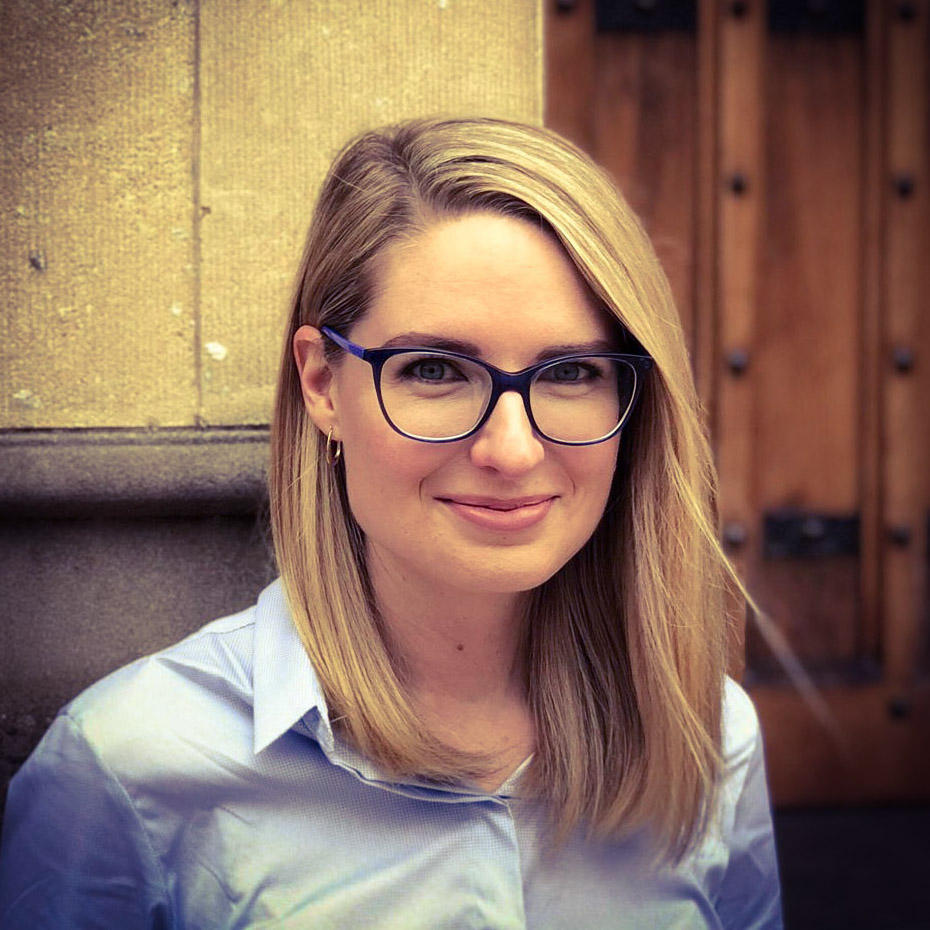Better protection needed for individual rights to human biomaterials, argues Maeghan Toews
Jyllian Park - 4 March 2024

Who has the rights to human biomaterials — saliva, hair, blood, organ tissue — when used for academic research or commercial purposes? This question fueled Maeghan Toews' research at the University of Alberta Faculty of Law as she examined the legal and ethical issues arising from medical biotechnologies for her doctoral work.
Toews, who serves as a lecturer at the University of Adelaide, defended her PhD at the Faculty of Law this past December under the supervision of Professor Timothy Caulfield.
Her doctoral research puts her on the cutting-edge of scientific and commercial advancements. Academia and private industry are now using human biomaterials for everything from vaccines to drug treatments, DNA mapping and disease prevention. Governments are maintaining DNA databanks for forensics in criminal investigations, and in the public space, companies like 23andMe have everyday citizens paying to swab their mouths in hopes of learning more about their ancestry.
But, as Toews argues, the law has not kept pace with these rapid developments.
“We still haven't developed a solid legal framework for how we deal with human body parts once they become separated from a person,” says Toews. “I wanted to take a bird’s-eye view of the issue, looking at all body parts in common law countries and frameworks in terms of legal regulation and how we could potentially better protect an individual's rights and interests to their own body parts.”
With the practical applications for biomaterials in both the academic and corporate space, Toews discovered that while there has been red-hot interest in gathering and examining these materials, little is being done to protect the rights of the individuals who once had sole control over their genetics.
“Biomaterials are really valuable, and they're valuable to a wide range of institutions. When I looked at the law, what I found and what I argued is that institutional control over biomaterials is protected to a much greater degree than the individual. If we're going to try and improve and clarify the law, I argue that we need to look at how we can actually better strengthen individual rights.”
While there are laws in place to prevent human cloning or illegal organ donation, there is little framework to protect individual interests when it comes to people who may feel that their rights have been violated. Currently, there is scholarship around applying property law in these cases, but Toews’ research argues that privacy law could better protect individuals seeking protection for their own biomaterials.
“If we treated physical biomaterials, like your hair that you take out of your head, not in terms of the physical thing but as personal information, then the privacy statutes we have to protect personal information would have new work to do in terms of protecting individual rights and interests in their biomaterials.”
The property versus privacy debate within Toews’ research opens the door to a more nuanced discussion of how to protect an individual's rights as more value is placed on what many would have previously considered waste.
Take a discarded toenail for example.
“Property law might treat that toenail as like an abandoned property, and if you give up physical possession, your rights stop,” says Toews. “Whereas privacy doesn't have that limitation. I think that privacy law could have some value in terms of maintaining ongoing control, past the point of separation, past the point of physical transfer of our biomaterials.”
NEXT CHAPTER
For her next chapter, Toews is diving deeper into an area of research that came up during her doctoral research: postmortem sperm retrieval and the ethical and legal implications of using a person’s genetics once they have passed on.
“The law, specifically in Australia, on that issue is the Wild West. There have been court orders on different bases, but increasingly the suggestion has been that we use our organ donation legislation to regulate this, which is a legal framework that was not designed for this purpose. I'm looking at that and trying to add some clarity to at least that one little piece of biomaterial law.”
Toews’ doctor supervisor has been keeping up with her research and remains excited about her contributions to health law.
“Maeghan is a superstar, and I was honoured to be her supervisor,” says Caulfield. “She is doing work that is both academically sophisticated and much needed from a practical, economic and research policy perspective. She is having a real impact, and I know her future is bright.”
With everything to be gained by studying medical biotechnology, it can be forgiven when the scientific pursuit separates the person from the material, but perhaps the human connection deserves a closer look.
“I think most people aren't aware of potential uses and misuses that could be made,” says Toews. “Once people learn about it, I think it's surprising to them and they have different reactions because people feel different ways about their body parts.”